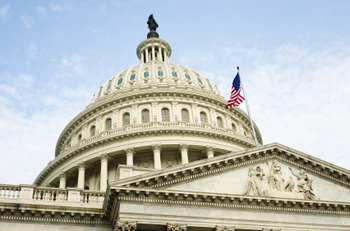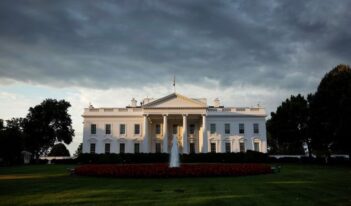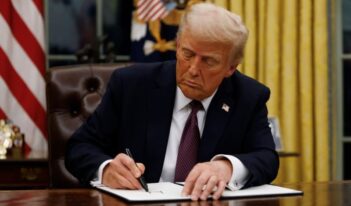
Scholars debate the constitutionality–and wisdom–of the REINS Act.
Should Congress require agencies to get its approval before any major rules can take effect?
That’s the question raised by the Regulations From the Executive in Need of Scrutiny Act (REINS Act), which would require Congress to pass a joint resolution to approve agencies’ “major rules”—that is, those that the Office of Management and Budget (OMB) anticipates will impose an annual cost of more than $100 million or will have significant economic or anticompetitive effects.
It is also a question that has two parts: constitutional and policy. Would the REINS Act be constitutional? Even if so, would it be good policy?
Sally Katzen argues that the answer to both questions is clearly “no.” Katzen, a former Administrator of the Office of Information and Regulatory Affairs (OIRA) who now teaches at the New York University Law School, explains her views in a recent paper that expounds ideas she previously expressed on The Regulatory Review.
Katzen thinks the REINS Act violates the separation of powers doctrine. She maintains that the act “alter[s] the balance of power between the President and the Congress.” Katzen contends that the REINS act limits agencies’ implementation of their authorizing statutes because it constrains agencies’ rulemaking power. Therefore, the act “impermissibly interferes with the President’s constitutional duty to ‘take care that the laws be faithfully executed.’”
Professor Jonathan H. Adler of the Case Western Reserve University School of Law begs to differ. Adler argues—in another recent paper that follows an earlier The Regulatory Review essay—that the REINS Act does not violate principles of separation of powers. The bill is distinguishable from the legislative veto which the Supreme Court held unconstitutional in INS v. Chadha because this process is bicameral—requiring approval from both the House and the Senate—and because any joint resolution affirming an agency rule would need to be presented to the president for veto or signature.
He also rejects concerns that the REINS Act would place Congress in the position of unduly interfering with executive authority. He argues that, pursuant to the act, there is no interference with a core executive function because the Act affects the rulemaking power that Congress delegated to agencies.
Another point of contention centers on provisions in the REINS Act that create an expedited approval procedure by limiting committee deliberation to fifteen days and prohibiting Senate filibusters.
In his paper, Aaron-Andrew P. Bruhl maintains that using statutes to set legislative rules may violate the Article I power of each house to determine the rules of its own proceedings. By contrast, Adler argues that Article I does not prevent the congressional creation of procedures, but instead allows either house to unilaterally adjust statutory process rules. Moreover, he points out that expedited review currently applies by statute to congressional approval of trade agreements.
Of course, even if the REINS Act is constitutional, this does not mean it is also good policy.
Jonathan Siegel, of the George Washington University Law School, argues that the Act, while constitutional, is “hopelessly impracticable.” He thinks the act would put immense pressure on legislative resources because Congress will not have sufficient time to consider all major rules responsibly.
Siegel also points out that agencies were created largely to place rulemaking power in the hands of individuals with the expertise to deal with complicated issues. Adding Congress’s lack of expertise to its inadequate amount of time further demonstrates the policy problems of the REINS Act. Siegel also asserts that placing rulemaking back in the hands of the legislature will excessively politicize rulemaking, thereby “exposing all major rules to the full force of the political process.”
Adler, by contrast, argues that the REINS Act will have positive social effects. For example, he maintains that the bill would not affect most agency activity because only two to three percent of rules are considered major rules.
Moreover, he contends that for these major rules, that by definition will have a large impact on society, congressional control and accountability is warranted in a democracy. When Congress is required to approve major rules, it can rein in overzealous agency action that does not have majority support. Further, legislators must place their support or condemnation of regulatory proposals on the record. Adler articulates that it is “more difficult for lawmakers to actually vote against pollution controls than it is for them to pontificate against them.”
Adler also asserts that the REINS Act will not undermine rulemaking. The expedited review process requires Congress to vote within seventy legislative days of the publication of the final rule. Additionally, Adler argues that Congress will quickly approve the most consequential rules protecting the health and safety of Americans as long as the rules have majority support.
The debate between these scholars would suggest that the jury is still out as to whether the REINS Act is constitutional and good policy. Siegel and Adler agree that the bill would be constitutional, but disagree on whether it makes good policy sense. Katzen meanwhile argues that the act is both unconstitutional and bad policy.
In the end, this debate may be moot if Siegel is correct that the act will never become law. The REINS Act was originally referred to the Senate in 2011 and stalled in the Committee on Homeland Security and Governmental Affairs. Since then, the REINS Act was reintroduced in the House and, on July 19, 2013, the House Committee on the Judiciary passed the bill as amended.



